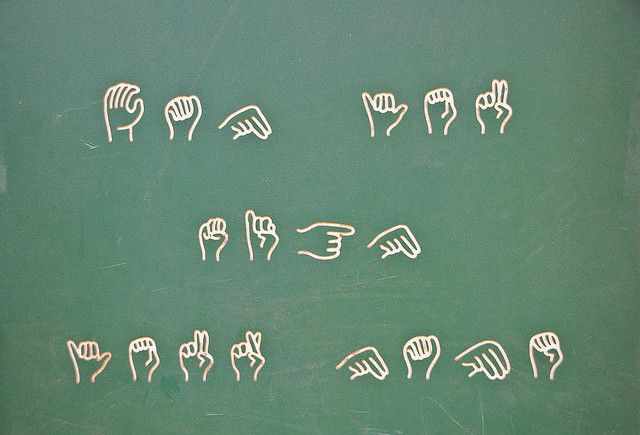Audio Illusion Reveals The Power Of Priming, The Brain’s Natural Tendency To Make Things Stick

The brain is a curious beast. It can perform unbelievable feats with seemingly no information, but it’s also fragile: The slightest misfire of neurons can wipe out entire speech capabilities or sensations of realness. Among its stellar abilities is a knack for recognizing language.
The Franklin Institute in Philadelphia’s latest brain exhibit, Your Brain, involves an audio illusion that exploits the psychological effect of priming. When we hear or see something, it doesn’t wash off our brains as if it were coated in Teflon. Sensory information is sticky. It keeps with us for a brief period of time, or longer, depending on how long we’re exposed to the stimulus. An extreme but potent example is the Tetris effect: After hours and hours of fitting colored blocks next to one another, for the next few days suddenly the whole world respects those patterns.
Here’s the Franklin Institute’s example:
Why It Works
Priming underpins nearly all modern psychological research. Before its discovery in 1971, psychology had no way of getting inside people’s heads. How do we know what others’ natural tendencies are? Can we know? Without an understanding of priming, researchers must rely on people’s raw behavior, without any thought or consideration for how the environment could be playing a role.
When our brains take in information, the data first gets stored as an implicit memory. The catalog of implicit memories determines how we act as unconscious decision makers. We know how to pick up a pair of chop sticks and load platefuls of sushi into our mouths without any effort. Certain memories also go on to get stored as explicit memories. These involve retrieving stored information intentionally, such as which kind of sushi you normally order. Explicit memory takes effort. Implicit memory doesn’t. Is it any wonder, then, that cases like the Tetris effect and the Franklin Institute’s example are so powerful?
Priming isn’t limited to fun little examples of tricking your brain. It has profound implications for how we behave as moral actors. Priming can cause people to act more kind or malicious toward others. Give someone a box of candy, and they are more likely to extend kindness forward in their own lives. Interrupt them during an impassioned moment, and their implicit memory will favor negative thoughts and experiences later on.
The eminent psychologist Daniel Kahneman goes so far to assert bias influences just about everything we do. We can’t step outside our own heads and observe the world as strangers, Kahneman explains, so the best the brain can do is rely on recent information and experience to form interpretations of the world.
Kahneman likes the simple, yet illuminating, example of “Ann approached the bank.” With no other information, the sentence conjures up a concrete idea of what Ann is doing. But if we now say “The boat glided gently down the river,” how does “Ann approached the bank” now strike you? The power of priming lies in what your brain sees, but to which you still remain blind.



























